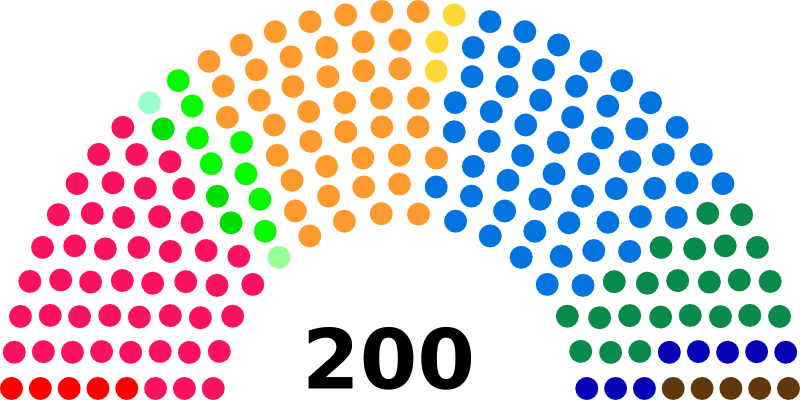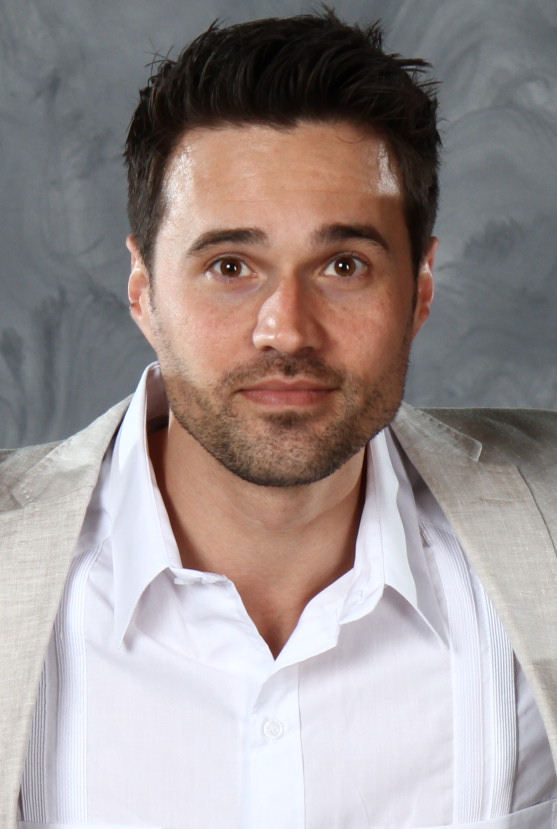|
1983 Swiss Federal Election
Federal elections were held in Switzerland on 23 October 1983. Nohlen, D & Stöver, P (2010) ''Elections in Europe: A data handbook'', p1895 The Free Democratic Party emerged as the largest party in the National Council, winning 54 of the 200 seats. It was the first time the Social Democratic Party had not received the most votes in a federal election since 1925.Nohlen & Stöver, pp1947–1951 The main issues included environmental protection and unemployment. Results National Council By constituency Council of the States References {{Portal bar, Politics, Switzerland Switzerland Federal Federal or foederal (archaic) may refer to: Politics General *Federal monarchy, a federation of monarchies *Federation, or ''Federal state'' (federal system), a type of government characterized by both a central (federal) government and states or ... Federal elections in Switzerland October 1983 events in Europe ... [...More Info...] [...Related Items...] OR: [Wikipedia] [Google] [Baidu] |
1979 Swiss Federal Election ...
Federal elections were held in Switzerland on 21 October 1979. Nohlen, D & Stöver, P (2010) ''Elections in Europe: A data handbook'', p1895 The Social Democratic Party and the Free Democratic Party emerged as the largest parties in the National Council, both winning 51 of the 200 seats.Nohlen & Stöver, p1955 Results National Council By constituency Council of the States References {{Portal bar, Politics, Switzerland Switzerland 1979 in Switzerland Federal elections in Switzerland October 1979 events in Europe Federal Federal or foederal (archaic) may refer to: Politics General *Federal monarchy, a federation of monarchies *Federation, or ''Federal state'' (federal system), a type of government characterized by both a central (federal) government and states or ... [...More Info...] [...Related Items...] OR: [Wikipedia] [Google] [Baidu] |
Evangelical People's Party Of Switzerland
The Evangelical People's Party of Switzerland (german: Evangelische Volkspartei der Schweiz), Swiss Evangelical Party (french: Parti évangelique suisse, it, Partito Evangelico Svizzero), or Evangelical Party of Switzerland ( rm, Partida evangelica da la Svizra) is a Protestant Christian-democratic political party in Switzerland, active mainly in the Cantons of Bern, Basel-Land, Basel-Stadt, Aargau and Zürich. "Evangelical" translates as ''evangelisch'', the German term for "Protestant", as opposed to "evangelical" as used in Anglo-Saxon Christianity. The EVP is conservative on euthanasia, abortion, registered partnerships and other typically Christian issues, centrist on economic issues and stands rather centre-left on issues of wealth redistribution, education, environmentalism and immigration. Among other things, it claims to be " dedicated to protecting the environment out of a sense of responsibility for Creation" and states that "the ethical values of the Bible ... [...More Info...] [...Related Items...] OR: [Wikipedia] [Google] [Baidu] |
1983 Elections In Switzerland
The year 1983 saw both the official beginning of the Internet and the first mobile cellular telephone call. Events January * January 1 – The migration of the ARPANET to Internet protocol suite, TCP/IP is officially completed (this is considered to be the beginning of the true Internet). * January 24 – Twenty-five members of the Red Brigades are sentenced to life imprisonment for the 1978 murder of Italian politician Aldo Moro. * January 25 ** High-ranking Nazism, Nazi war crime, war criminal Klaus Barbie is arrested in Bolivia. ** IRAS is launched from Vandenberg AFB, to conduct the world's first all-sky infrared survey from space. February * February 2 – Giovanni Vigliotto goes on trial on charges of polygamy involving 105 women. * February 3 – Prime Minister of Australia Malcolm Fraser is granted a double dissolution of both houses of parliament, for 1983 Australian federal election, elections on March 5, 1983. As Fraser is being granted the dissolution, Bill Hayden ... [...More Info...] [...Related Items...] OR: [Wikipedia] [Google] [Baidu] |
1983 Elections In Europe
The year 1983 saw both the official beginning of the Internet and the first mobile cellular telephone call. Events January * January 1 – The migration of the ARPANET to Internet protocol suite, TCP/IP is officially completed (this is considered to be the beginning of the true Internet). * January 24 – Twenty-five members of the Red Brigades are sentenced to life imprisonment for the 1978 murder of Italian politician Aldo Moro. * January 25 ** High-ranking Nazism, Nazi war crime, war criminal Klaus Barbie is arrested in Bolivia. ** IRAS is launched from Vandenberg AFB, to conduct the world's first all-sky infrared survey from space. February * February 2 – Giovanni Vigliotto goes on trial on charges of polygamy involving 105 women. * February 3 – Prime Minister of Australia Malcolm Fraser is granted a double dissolution of both houses of parliament, for 1983 Australian federal election, elections on March 5, 1983. As Fraser is being granted the dissolution, Bill Hayden ... [...More Info...] [...Related Items...] OR: [Wikipedia] [Google] [Baidu] |
Autonomous Socialist Party (Jura)
The Autonomous Socialist Party of Southern Jura (french: Parti socialiste autonome du Sud du Jura, PSA-SJ, or PSA), is a Swiss francophone subcantonal political party in the Northern Bernese Jura district of the Canton of Bern, affiliated to the Jura Socialist Party, itself a part of the Swiss Socialist Party (SP/PS). It coexists with the Bernese Jura Socialist Party (PSJB), affiliated to the cantonal Bernese Socialist Party, also affiliated to the federal SP/PS. The PSA favours a unification of the French-speaking district of the Canton of Bern with the French-speaking Canton of Jura The Republic and Canton of Jura (french: République et canton du Jura), less formally the Canton of Jura or Canton Jura ( , ), is the newest (founded in 1979) of the 26 Swiss cantons, located in the northwestern part of Switzerland. The capita ..., while the PSJB opposes it. Sources Social Democratic Party of Switzerland {{Switzerland-stub, Switzerland, Politics ... [...More Info...] [...Related Items...] OR: [Wikipedia] [Google] [Baidu] |
Progressive Organizations Of Switzerland
The Progressive Organisations of Switzerland (POCH; german: Progressive Organisationen der Schweiz; french: Organisations progressistes de Suisse) were a communist party founded in 1969. Most of its members were from a university background. History of the POCH TheIn 1977 many women's group split from the party to form the Organisation for the cause of women (German:Organisation für die Sache der Frau (OFRA)). In 1987 the POCH distanced itself from Marxism-Leninism and changed its name to POCH-Grüne ( POCH-Greens). After the disbandment of numerous canton parties between the late 1970s and 1993 many members changed their party affiliation to the Green Party of Switzerland. The last section of the party in Basel-City disbanded in 1993, spawning in 1995 the Basel's strong alternative (GermanBasels starke Alternative. Election results National Council See also * Rotpunktverlag Rotpunktverlag is a Swiss publishing house, headquartered at ''Hohlstrasse 86A'', 8004 Zür ... [...More Info...] [...Related Items...] OR: [Wikipedia] [Google] [Baidu] |
Ring Of Independents
The Alliance of Independents, Ring of Independents, or National Ring of Independents, (german: Landesring der Unabhängigen (LdU), french: Alliance des Indépendants (AdI), it, Anello degli Indipendenti) was a social liberal political party in Switzerland that existed between 1936 and 1999. History of the party Formation Gottlieb Duttweiler – the founder of Migros, a retail business and consumer cooperative – was dissatisfied with the state of Swiss politics in the 1930s and therefore founded the Alliance of Independents with a group of like-minded people as an association. According to its statutes, it was not meant to be a political party at first but to be an association to help to reconcile capitalists and workers. From the beginning, the LdU also served the interests of the Migros cooperative, successfully lobbying against legislation that impeded its business model by restricting networks of general stores or sales by trucks (one of Migros' marketing strategies). ... [...More Info...] [...Related Items...] OR: [Wikipedia] [Google] [Baidu] |
Federal Democratic Union Of Switzerland
The Federal Democratic Union of Switzerland (German: ''Eidgenössisch-Demokratische Union'', EDU; French: ''Union Démocratique Fédérale'', UDF; Italian: ''Unione Democratica Federale'', UDF; Romansch: ''Uniun Democrata Federala'', UDF) is a national-conservative political party in Switzerland. Its ideology is politically conservative, Protestant fundamentalist, and right-wing populist. It is similar to the Christian right in the United States, and its top goals were to promote "biblical values" and oppose other cultures and values. Founded in 1975, the party's current president is . The EDU is a minor political party that polls around 1% of the vote and holds one seat in the Swiss National Council as of 2019. History The EDU was founded in 1975 as a split of the Republican Movement and the Nationale Aktion. The EDU maintains that it split from the Evangelical People's Party. At the beginning of its existence, the EDU's platform was strongly influenced by the ideology o ... [...More Info...] [...Related Items...] OR: [Wikipedia] [Google] [Baidu] |
Christian Social Party (Switzerland)
The Christian Social Party (CSP) (german: Christlich-soziale Partei, french: Parti chrétien-social) is a list of political parties in Switzerland, political party in Switzerland of the Christian left. The CSP is more aligned with social democracy than the other major Christianity and politics, Christian party, the Christian Democratic People's Party of Switzerland (CVP), which is more Economic liberalism, economically liberal. With the moderate Christian left as its background, the CSP commits itself to social-democratic and Environmentalism, environmentalist political solutions. The core principles of the CSP contain, among others, "solidarity with the socially and economically disadvantaged and the preservation of the environment." Electoral power As of 2016, the CSP does not hold any seats in the National Council of Switzerland. A seat in the lower house was once held for decades by Hugo Fasel representing the canton of Fribourg. On a cantonal level, the CSP has many ele ... [...More Info...] [...Related Items...] OR: [Wikipedia] [Google] [Baidu] |
Autonomous Socialist Party (Ticino)
The Autonomous Socialist Party ( it, Partito Socialista Autonomo, PSA) was a far-left political party in Switzerland, based in the canton of Ticino. History The PSA was established in 1966; its founders were former members from the Social Democratic Party who had been expelled for their far-left views.Vincent E. McHale (1983) ''Political parties of Europe: Poland-Yugoslavia'', Greenwood Press, pp912–913 It failed to win a seat in the National Council in the 1971 federal elections, but in the 1975 elections it ran in Ticino in alliance with the Progressive Organizations of Switzerland (POCH), with Werner Carobbio winning one seat. It continued its alliance with POCH for the 1979 elections, retaining its single seat. It retained the seat again in the 1983 and 1987. It was renamed Unitarian Socialist Party in 1988, Nohlen, D & Stöver, P (2010) ''Elections in Europe: A data handbook'', p1899 The PSA was well represented in the Grand Council of Ticino, maintaining between six an ... [...More Info...] [...Related Items...] OR: [Wikipedia] [Google] [Baidu] |
Republican Movement (Switzerland)
The Republican Movement (french: Mouvement républicain; german: Republikanische Bewegung) was a political party in Switzerland between 1971 and 1989. History The party was formed by James Schwarzenbach as a breakaway from the National Action against the Infiltration of People and Homeland party in 1971. Nohlen, D & Stöver, P (2010) ''Elections in Europe: A data handbook'', p1899 Swiss Democrats (SD) Political Year It received 4.3% of the vote in the elections that year,Nohlen & Stöver, p1950 winning seven seats.Nohlen & Stöver, p1954 However, in the 1975 elections< ... [...More Info...] [...Related Items...] OR: [Wikipedia] [Google] [Baidu] |




